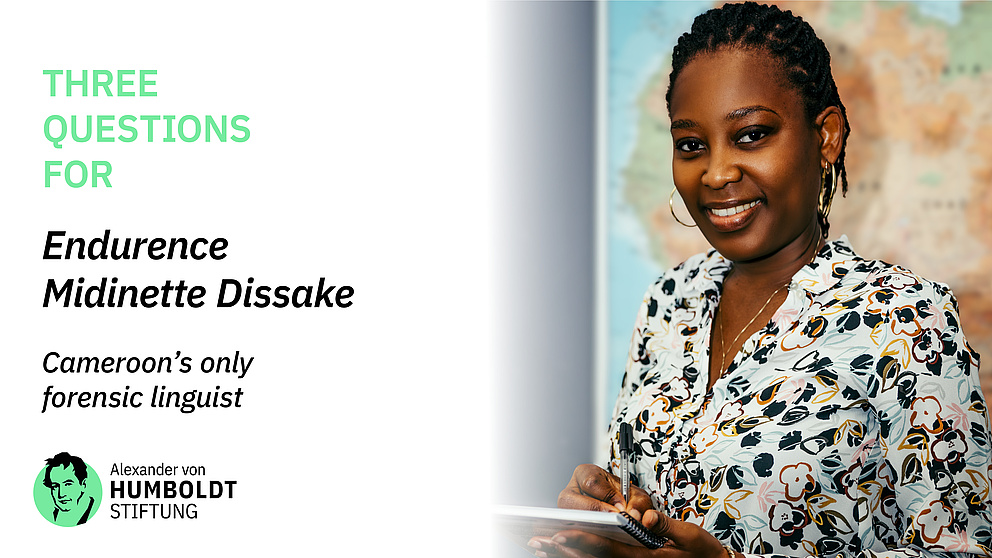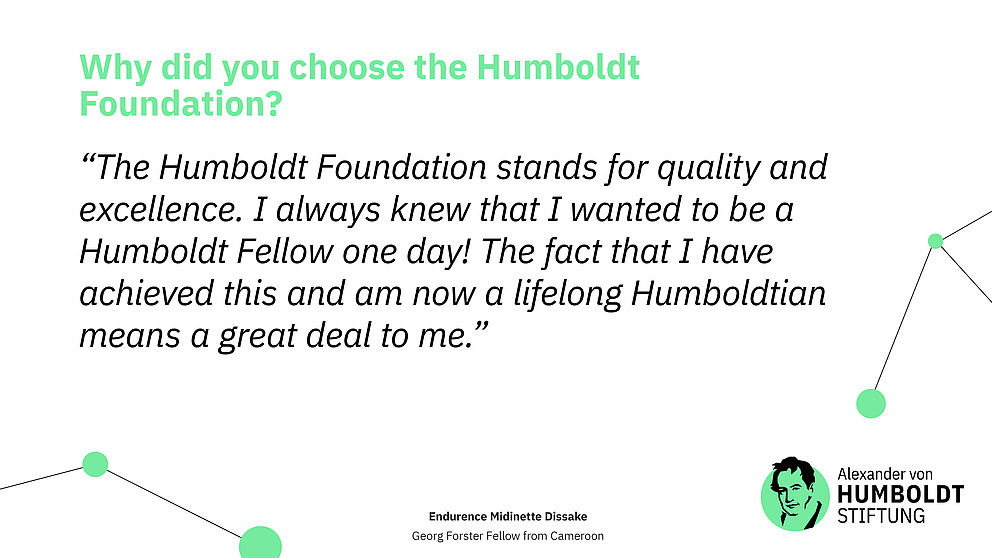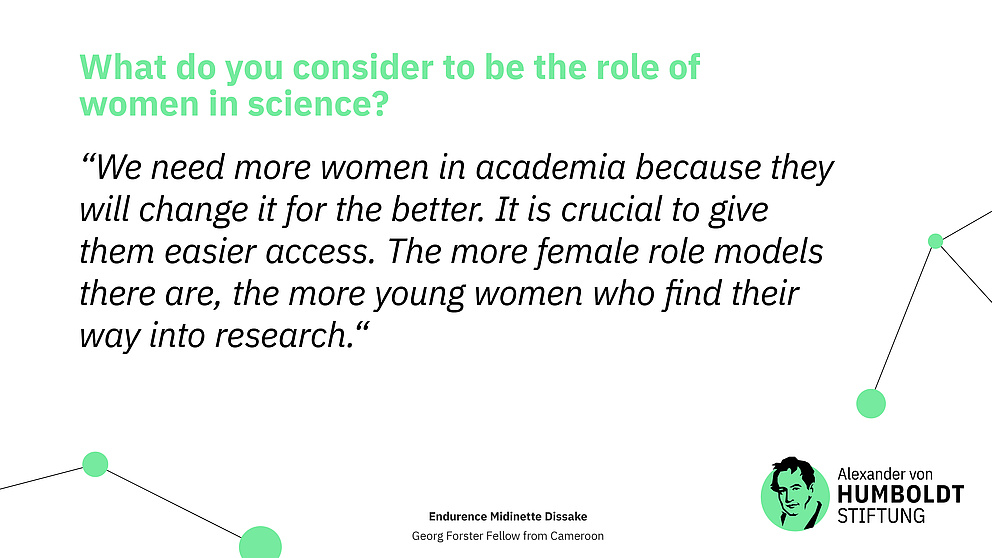
Contact
Press, Communications and Marketing
Tel.: +49 228 833-144
Fax: +49 228 833-441
presse[at]avh.de
When the forensic linguist and Georg Forster Fellow Endurence Midinette Dissake talks about her research, she talks about justice. “It is my greatest motivation and the reason why I do research.” Her sense of justice and her fascination with language regularly take the Cameroonian researcher into courts in her country. She is currently part of the team headed by her host, Professor Andrew Stewart, at the University of Bayreuth’s Academy of Advanced African Studies.
Back in 2017 at the age of 24, she addressed the linguistic problems in Cameroonian courts in her doctoral thesis. Dissake says, “Two hundred and fifty languages are spoken in Cameroon, but in court there are only two, French and English, the languages of the two former colonial rulers. But many people don’t speak these languages. It is unjust to condemn someone who doesn’t understand what they are being accused of.” Dissake witnessed the case of a farmer who was accused of being a Boko Haram terrorist. “He neither had a lawyer nor an interpreter and was supposed to defend himself in French. And that, despite the fact that the right to an interpreter is enshrined in the law. He was sentenced to life in prison. Only when his family involved an NGO was the case repeated with an interpreter and a lawyer, and he was released.”
Interpreters for fair court cases
According to Dissake, a problem that exists in other African countries, too, and could be easily solved. Her suggestion is to formulate legal terminology in simple language. Moreover, a system of voluntary interpreters could be established like the one in the United States. “Multilingual people are given training so that they can translate legal language. They can be called upon when needed.” The topic is largely ignored both in public discourse and in the courts. Dissake says, “Many people are too ashamed to admit they don’t speak English or French. Judges suggest I would be creating problems where none exist.” But her lack of success is partly due to the fact that she is a lone warrior. She is currently the only forensic linguist in Cameroon. Her attempts to interest others in her field have failed. “My colleagues, who are often male and older, don’t take me seriously. I am now trying to spark the interest of Master’s students in the topic.”
Diversity in academia
Dissake had to fight for her career in academia, too. “If my mother had had her way, I would now be a housewife with children.” The only support she received was from her mentor and linguistic professor, Gratien Atindogbéan, at the University of Buea. “He was also the one who told me about the excellent research conditions in Germany and about the Humboldt Foundation. To become a Humboldt Fellow one day was my main goal. The fact I have achieved it and am now a lifelong Humboldtian means a great deal to me.” She wants to encourage other women to go into research because academia needs to be more diverse. This requires re-thinking, for her, as well. “I want African research not to be fundamentally called into question and for European and US researchers to take our work seriously.”
Conserving culture
And what she also wants is to experience the day when her research changes the legal system for the better. Moreover, she would like her work to help conserve the things that were largely abolished by colonial rule. In her current project, she is documenting the communicative practices of Tunen-speakers in customary law court proceedings in the Indigenous Banen community. These proceedings deal with conflicts between neighbours and marital issues, for example – a practice Dissake wants to record for posterity. Pre-colonial communities had functioning legal systems that people are unaware of today because everything was replaced by supposedly more progressive systems. Her motivation for this topic is also personal. “Tunen is my mother’s native tongue, she belongs to the Banen people. She spent a year helping me as my research assistant, translating and introducing me to village elders. She is now really proud that I’m an academic and can hardly wait to see my results published in book form.”
Author: Esther Sambale




